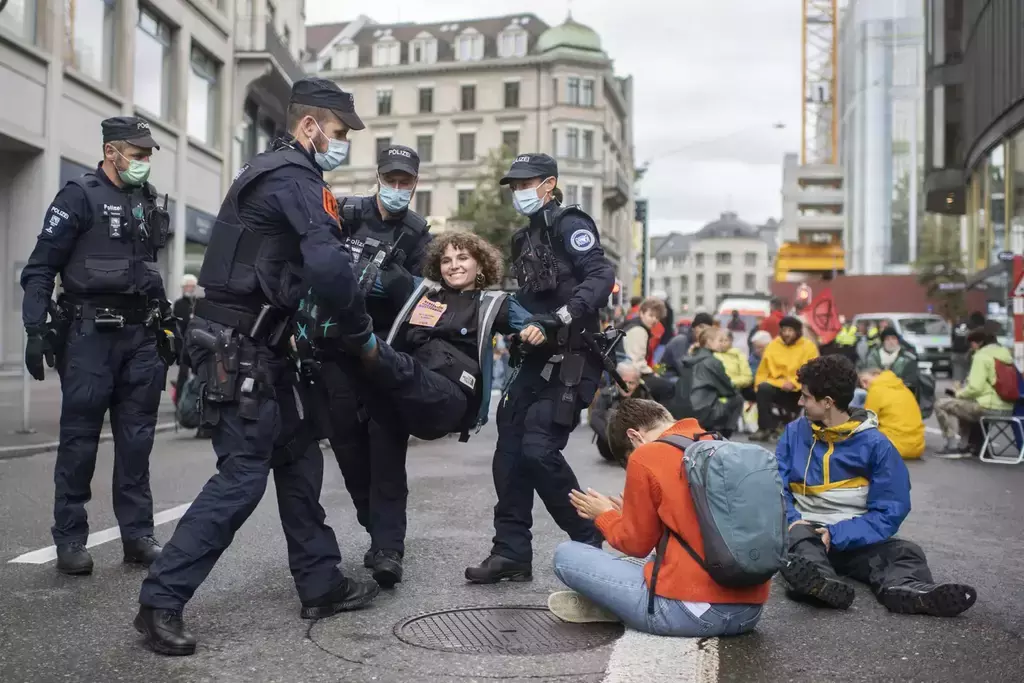الثلاثاء 28 نوفمبر 2023، 28 نوفمبر 2023
The Federal Court’s recent decision in Lausanne regarding climate activists presents a striking stance: demonstrators blocking access to a shopping center won’t face prosecution; instead, they’re seen as exercising their human rights, reports the NZZ.

During the “Black Friday” shopping rush in November 2019, supporters of Extinction Rebellion and the climate strike movement blocked entry to a shopping center in Freiburg. They laid in shopping carts, equipped with cushions for comfort, reinforced barricades, and chained themselves to the trolleys. Some sat on the ground, also chaining themselves. Despite a two-hour tolerance period, police had to intervene, cutting locks and removing activists still inside after closing time. This disrupted not only passersby but also staff forced to remain on-site.
Initially convicted for violating official orders and coercion, the participants were later acquitted of coercion by the cantonal court. The Federal Supreme Court, echoing the European Court of Human Rights (ECHR), upheld this decision. The action fell under freedom of expression and assembly, emphasizing the state’s need for tolerance toward peaceful but disruptive gatherings, evaluating the duration and opportunity for expression.
This ruling signifies a shift in Swiss judicial precedent. Actions previously deemed coercion—like forming human barriers or blocking traffic for shorter periods—were considered punishable. However, this recent decision suggests a lenient stance, potentially seen as an invitation for disruptive “peaceful” actions, especially by climate activists, with minimal consequences at most being fines.
